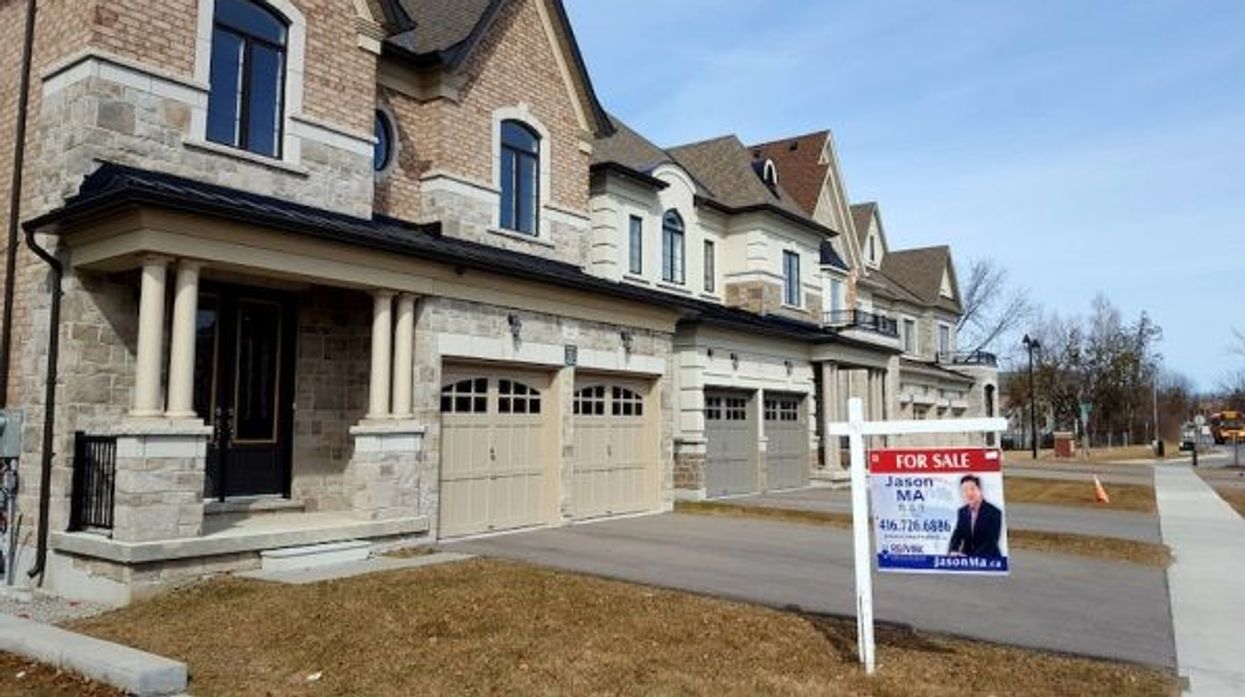As housing demand grows and supply further depletes, strain continues to build on Canada's housing market -- resulting in rising prices, bidding wars, and buyers being priced out of their cities and towns.
As such, talks of the Canadian housing market overheating continue, prompting government action to rectify the situation -- which has already been labelled as a "national concern."
Robert Hogue, an economist for RBC -- the country’s largest bank and biggest mortgage lender -- recently said in a research note "demand is exceedingly strong, inventories are generally low, and property values have soared to levels far outside historical norms.”
“Making matters worse: buyers and sellers expect prices to continue to escalate,” added Hogue.
READ: Evidence of Overheating in Canada’s Housing Market Now Apparent at National Level
Another growing concern is that with interest rates currently at rock-bottom levels, alongside changing housing needs and surging household savings, demand only continues to grow.
Not to mention surging prices are subsequently creating waves of demand, as the unprecedented prices are causing a panic among buyers as they face a fear of missing out on smaller markets’ relative affordability. (And we do mean 'relative'.)
As such, Hogue says policymakers should step in and do something because an overheated housing market threatens to “destabilize the economy down the road if or when a correction occurs, with possible heavy costs for governments.”
“The threat is particularly potent because excessively high price expectations are widespread,” says Hogue, adding that Canada hasn’t had a market overheating of this scope since the late 1980s."
And while Hogue isn't alone with his calls for assistance to cool the market, a Canadian real estate firm is asking for governments to be cautious with cooling measures.
In a joint statement from Christopher Alexander, Chief Strategy Officer and Executive Vice President at RE/MAX of Ontario-Atlantic Canada and Elton Ash, Regional Executive Vice President at RE/MAX of Western Canada, the real estate professionals have asked governments to be cautious with cooling measures such as policies and taxes that have served as short-term fixes in the past but have not provided a long-term solution to Canada’s housing affordability crisis.
“Furthermore, the pandemic lockdowns have already had a huge impact on the supply of listings available for sale, so we urge our government to carefully consider any new measures that could potentially reduce supply even further,” says Alexander.
The RE/MAX professionals said that if governments can't cool the overheated market through policy or taxation, they suggest the following ideas:
1. Proposal to add a mandatory condition to every offer, making the purchase is conditional on financing:
"This would reduce buyer’s remorse, and would help to ensure that people can afford what they are buying."
2. Proposal to institute an industry “watchdog” to review transactions where homes are sold well over the asking price:
"This would ensure fair listing prices (not well below market value to create bidding wars). Agents who are found to be contravening these rules would face fines."
3. Add more housing supply:
"This is the real and only solution to our housing crisis. We need to incentivize more development of affordable, family-sized housing like three-bedroom condos, and allow for more detached housing beyond our existing urban centres."
Alexander and Ash added that the country can’t continue to fight urban sprawl while simultaneously expecting housing prices to cool.
"It’s not feasible. What we’re seeing in the market right now is simple economics – low supply and high demand. We need more homes to meet Canadians’ current needs while anticipating the housing needs of the 1.2 million people who are expected to immigrate to Canada through 2023," reads the joint statement.
"Maybe now is the time to consider expanding the boundaries of developable land."
At this time, the Bank of Canada has already publicly said there are early signs of overheating in the housing market, though despite these signs, there are no plans for policymakers to intervene and raise interest rates until the economy and employment are back on track following the declines caused by COVID.
However, Bank of Canada Governor Tiff Macklem has said the situation should be monitored “very closely” and that the bank will keep an eye on debt levels, as mortgage debt rises as households pay down other debt like credit cards and personal loans.
All of this begs the question, Is This the Year the GTA Real Estate Bubble Bursts?





















